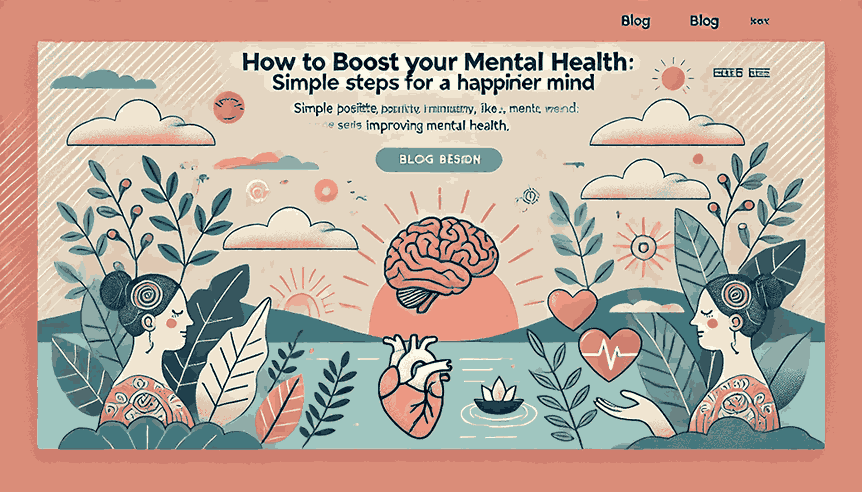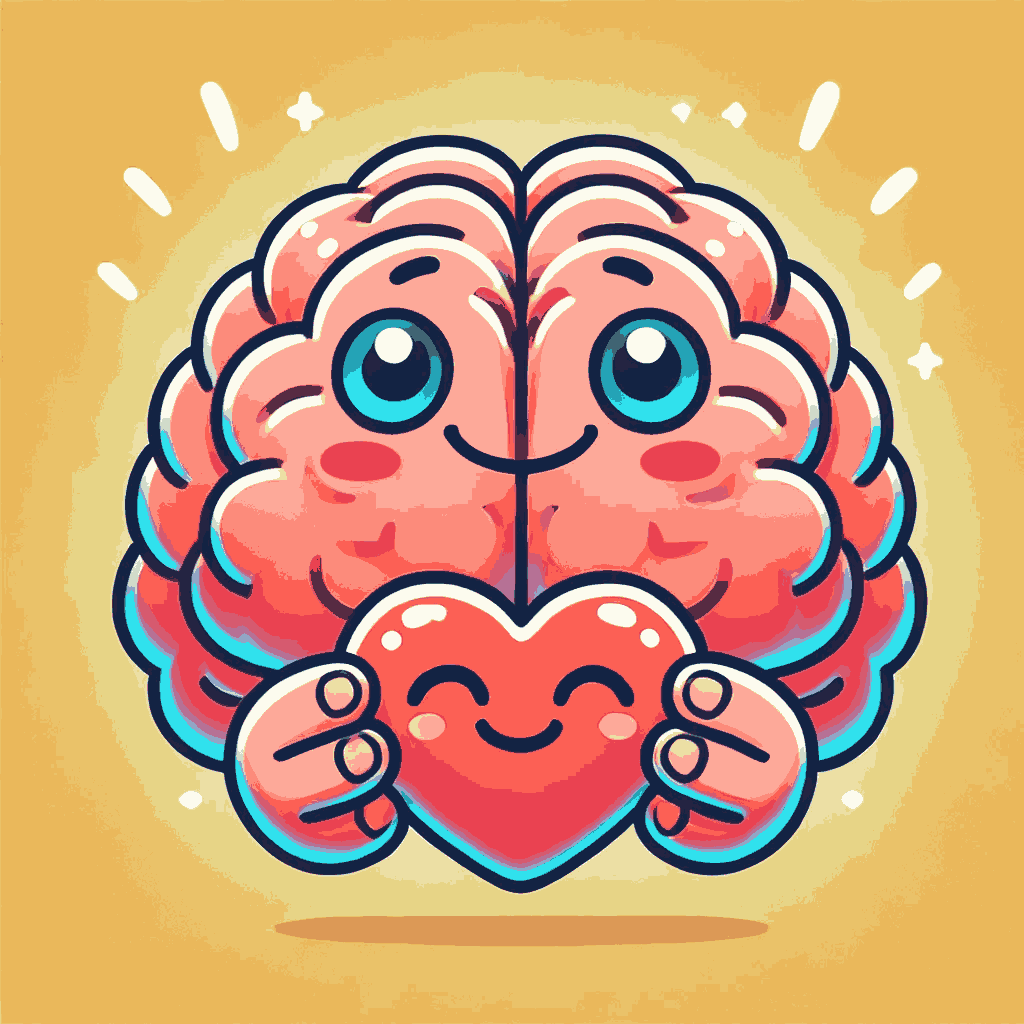
Hey there! Feeling a bit off lately? Well, you’re not alone. Mental health is super important, and taking care of your mind is just as crucial as looking after your body. In this post, we’ll dive into how to boost your mental health with simple steps that you can easily follow. Whether you’re managing stress, looking for positive habits, or just need a few tips to feel better, this guide is here to help. Let’s get started!

Why is Mental Health Important?
Mental health affects everything you do—how you think, feel, and handle everyday stresses. When your mental health is in good shape, you can deal with problems more effectively, enjoy life, and make healthier choices. Neglecting it can lead to feeling down, anxious, or even sick. That’s why it’s super important to take care of your mental well-being every single day.
Simple Steps for Better Mental Health
Want to know how to boost your mental health? Let’s explore some simple steps that can make a huge difference.
1. Practice Mindfulness for Mental Health
Mindfulness means being present in the moment, not worrying about what happened yesterday or stressing about tomorrow. It’s like taking a little break for your brain!

- How to Get Started: Sit comfortably, close your eyes, and take deep breaths. Pay attention to your breathing, and if your mind wanders, gently bring it back. You can also try apps like Headspace or Calm, which are great for beginners.
2. Set Healthy Mind Practices Daily
Create small habits that promote a healthy mind. These can be little things you do each day that make you feel good.
- Examples of Healthy Mind Practices:
- Gratitude Journaling: Write down three things you’re grateful for every day. It helps shift your focus to the positive.
- Limit Screen Time: Especially before bed, avoid screens to help your brain wind down.
Ways to Improve Mental Well-Being
3. Get Moving: Exercise and Mental Health

Exercise isn’t just for your muscles; it’s a big mood booster too! When you move, your body releases feel-good chemicals called endorphins that can help reduce anxiety and stress.
- Simple Exercises to Try:
- Walking: A simple walk around your neighborhood can clear your mind.
- Dancing: Put on your favorite song and dance around—no one’s watching!
4. Connect with Others: Social Interaction Matters
Talking to friends or family, even if it’s just a quick chat, can make you feel happier and less stressed. Humans are social creatures, and connecting with others helps boost your mood.
- Ideas to Connect:
- Video Calls: Set up regular video calls with friends or family.
- Clubs or Teams: Join a group that shares your interests, like a book club or sports team.
Manage Stress and Anxiety with These Tips
5. Learn to Say No: Setting Boundaries

Sometimes, we feel overwhelmed because we’re doing too much. Learning to say no when you need to is a powerful way to protect your mental health.
- Why It’s Important: It’s okay to put yourself first. You don’t have to say yes to everything!
6. Practice Self-Care for Mental Health
Self-care is all about taking time to do things that make you feel happy and relaxed. It’s not selfish—it’s necessary!
- Simple Self-Care Ideas:
- Take a Bath: A warm bath can help you relax after a tough day.
- Read a Book: Dive into a good book to escape reality for a bit.
Positive Mental Health Habits to Develop
7. Eat Well: Food for Your Mood

What you eat can impact how you feel. Healthy foods fuel your body and brain, helping you stay energized and focused.
- Brain-Boosting Foods:
- Berries: Packed with antioxidants that protect your brain.
- Nuts: Full of healthy fats that support brain function.
8. Sleep Well: Rest for Your Mind
Sleep is when your body and mind recharge. Without enough rest, you might feel cranky, tired, and unable to concentrate.
- Tips for Better Sleep:
- Set a Routine: Go to bed at the same time each night.
- Limit Caffeine: Avoid drinks like coffee or soda before bedtime.
How to Reduce Stress and Boost Your Mood
9. Try Relaxation Techniques

Relaxation techniques like deep breathing, yoga, or even listening to music can quickly reduce stress and calm your mind.
- Quick Relaxation Tips:
- Deep Breathing: Inhale deeply, hold, then exhale slowly. Repeat.
- Music Therapy: Listen to your favorite calming tunes.
10. Find a Hobby You Love
Doing something fun just for you—like drawing, cooking, or playing a sport—can be a great way to unwind and feel happier.
- Why Hobbies Matter: They give you something to look forward to and can be a great escape from daily stress.
FAQs
What are the best ways to improve mental well-being?
Improving mental well-being involves regular self-care, connecting with others, eating well, and getting enough rest. Practicing mindfulness, setting boundaries, and finding enjoyable hobbies also contribute greatly.
How can I manage stress and anxiety effectively?
Managing stress and anxiety can be achieved through relaxation techniques like deep breathing, meditation, and exercise. Setting boundaries, saying no when necessary, and taking breaks to focus on self-care are also crucial.
Why is self-care important for mental health?
Self-care is vital because it allows you to recharge and maintain a healthy balance between your responsibilities and your personal well-being. It’s all about making sure you have the energy and mindset to handle life’s challenges.

What are some positive mental health habits to develop?
Develop positive habits like journaling, practicing gratitude, staying active, eating nutritious foods, and maintaining good sleep hygiene. These habits can create a strong foundation for your mental health.
Final Thoughts
Taking care of your mental health doesn’t have to be complicated. With simple steps like practicing mindfulness, staying active, and connecting with others, you can boost your mental well-being every day. Remember, it’s okay to ask for help when you need it and prioritize yourself.


